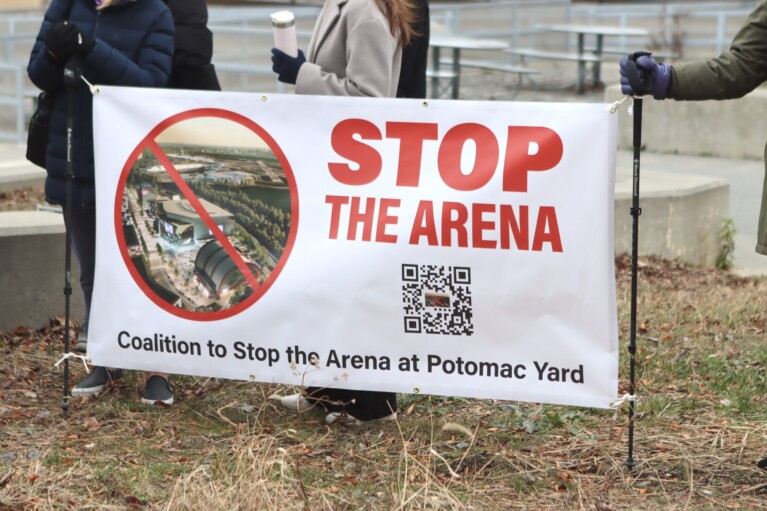As D.C., N.J. Bet Big on Pro Sports Wagering, Maryland Is Content to Take It Slow
Maryland’s decision to enshrine gambling in its constitution, rather than codify it in law, means it will spend the next couple years on the sidelines when it comes to wagering on professional sports.
Officials appear content with the go-slow approach, unconcerned that other states and Washington, D.C., are rushing to take advantage of a recent Supreme Court ruling that allows states to chart their own course.
A Senate Budget and Taxation Committee hearing on a measure to legalize betting on professional sports lasted mere moments Wednesday, as the bill’s sponsor — and the panel’s chairwoman — acknowledged that the legislation isn’t going anywhere this session.
“This bill is a constitutional amendment, and I’m aware now, at this point in the session, that there’s no intention to pass constitutional amendments this year,” Sen. Christopher West (R-Baltimore County) told his colleagues. “So this is by way of a preview of coming attractions of what you’ll get next year.”
Committee Chairwoman Nancy King (D-Montgomery) thanked West and urged subsequent witnesses to be as brief as possible. West’s bill, she said, “isn’t going anywhere this year.”
While Maryland opts for a slow-lane approach, others states and the District of Columbia are taking full advantage of a 2018 Supreme Court decision that struck down a ban on sports betting outside of Nevada.
In New Jersey, the state that challenged the decades-old prohibition, bettors can now wager on sporting events on their phones and at the Meadowlands race track. Delaware, West Virginia, Pennsylvania and a handful of other states also have given sports betting the green light.
D.C. Mayor Muriel E. Bowser is expected to sign a bill legalizing sports wagering in stadiums, arenas and bars any day now. The measure would also allow the company that runs the city’s lottery to develop a betting app.
Maryland lawmakers, by contrast, have opted to put off consideration of a sports betting bill until 2020. Any measure they approve would become the focus of a voter referendum that November.
“Nobody’s clamoring to me to pass anything,” King said in an interview. “Go down through my gazillion emails, never is there anything about sports betting.”
While one industry official estimated that a state the size of Maryland could take in “tens of millions of dollars” a year in revenue, King seemed doubtful.
“From what I’ve heard, we wouldn’t make that much money from sports betting,” she said.
Maryland casinos and race tracks are hopeful that any betting measures that make it through the General Assembly require gaming companies to partner with them, so they don’t lose market share to app-based pro sports wagering.
“I think clearly the die has been cast,” West said in an interview. “States around us are having sports wagering. If we don’t do it, Marylanders will do it elsewhere.”
He cautioned that the District’s approach — with ballpark, bar and app betting — feels “too broad.”
“At least at first, I think the proper thing to do would be to do sports betting in exactly the same locations” where betting is allowed now — horse tracks, casinos and off-track sites, West said. “Let’s walk before we run.”
Cory Fox, head of government affairs at Fan Duel, said the Supreme Court’s ruling provides an opportunity to legitimize the estimated billions of dollars in betting that Americans do illegally, on websites based in other countries.
“In order for the legal, regulated market to overtake the illegal market, it’s really important that you’re careful in setting up a market where there is competition, where folks are trying to offer good pricing and really good app experiences; otherwise folks will continue to bet on the offshore market,” he said.
He said the District’s decision to allow only the lottery contractor to develop a betting app provides Maryland with a window of opportunity.
“I think there’s an opportunity for Maryland to follow the model of New Jersey and allow for a competitive mobile marketplace, so that the really good apps are available. And they may be the first in the mid-Atlantic to do that,” Fox said.
Did someone forward this to you?
Get your own daily morning news roundup in your inbox. Free. Sign up here.




 Creative Commons Attribution
Creative Commons Attribution